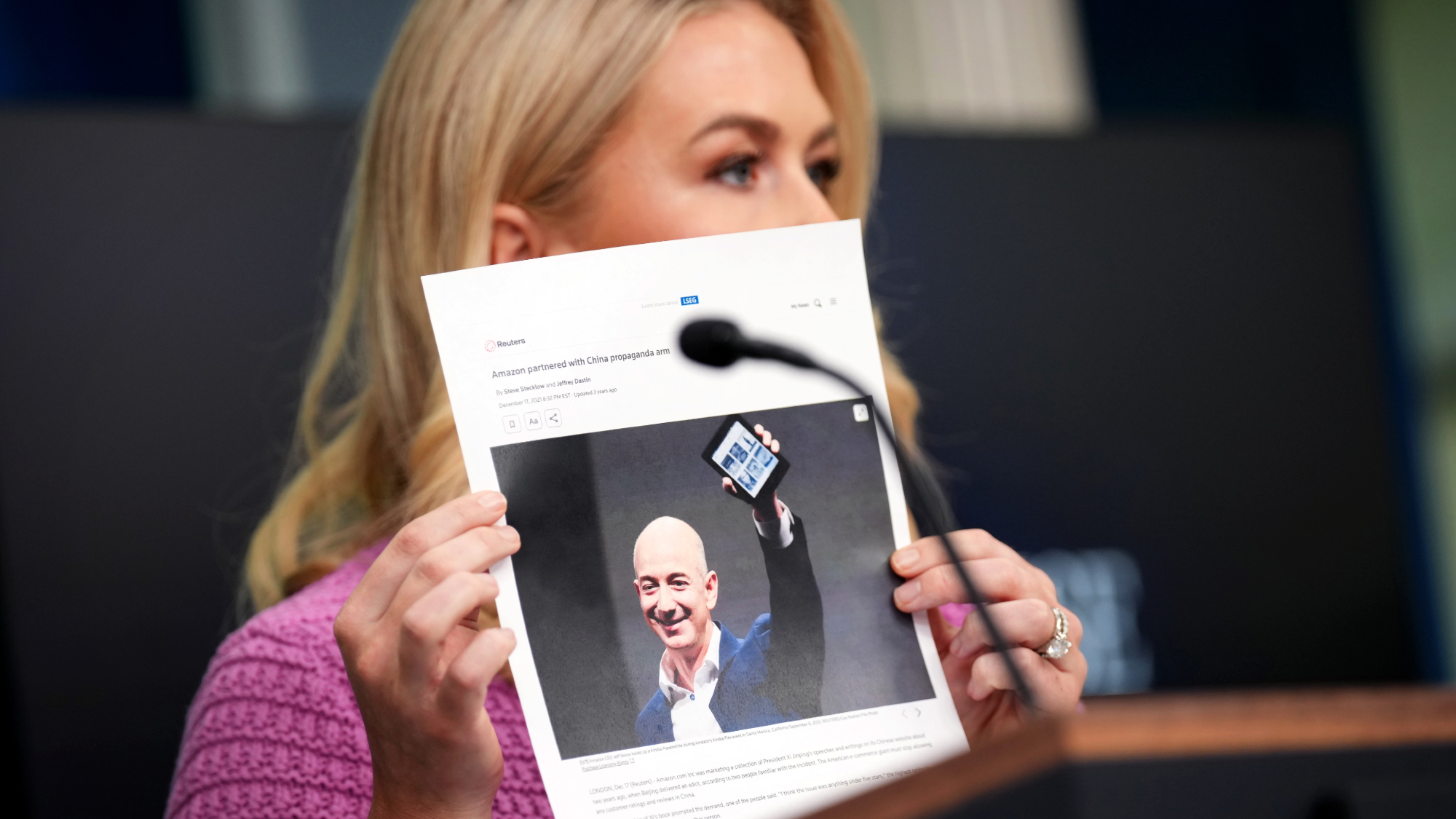EU seeks to break big tech monopolies
Brussels sets out an ambitious strategy for legislation to contend with rapidly advancing technology and monopolistic big tech


A free daily email with the biggest news stories of the day – and the best features from TheWeek.com
You are now subscribed
Your newsletter sign-up was successful
The European Union has announced it may require foreign tech behemoths to share their data with smaller European competitors, as the bloc seeks to challenge monopolies and assert its “technological sovereignty.”
Yesterday the European Commission released a white paper titled “A European strategy for data”, in which it sought to shape the EU’s stance on certain key digital issues, like artificial intelligence, data sharing, and facial recognition.
The document is a roadmap for legislation aimed at future-fitting the bloc for the digital age.
The Week
Escape your echo chamber. Get the facts behind the news, plus analysis from multiple perspectives.

Sign up for The Week's Free Newsletters
From our morning news briefing to a weekly Good News Newsletter, get the best of The Week delivered directly to your inbox.
From our morning news briefing to a weekly Good News Newsletter, get the best of The Week delivered directly to your inbox.
EU Commission Vice-President Margrethe Vestager has led the charge to enforce competition law and shape new European rules for the tech sector since December.
However, “After fining Google over $9 billion for anticompetitive behavior over the past three years, Ms. Vestager admitted that fines weren’t working and a broader regulatory approach was needed to change the behavior of big tech,” says The Wall Street Journal.
“She has learned that data is the fundamental issue and that what she’s done so far has not worked,” said Thomas Vinje, a partner at law firm Clifford Chance. Regulating how platforms use data “is the natural thing to do, but how this will be done still needs to be defined.”
The commission has learned a lot from its antitrust investigations - including those of Google, Qualcomm, Facebook, and Amazon - and has come to understand the centrality of data to these companies ongoing dominance in all aspects of their businesses, from machine learning and AI products to advertising revenue.
A free daily email with the biggest news stories of the day – and the best features from TheWeek.com
Opening up this trove of data could be of immense value to small European businesses, tech companies, and startups, who have to this point struggled to gain a foothold due to the overwhelming strength of American and Chinese giants.
“The high degree of market power resulting from the ‘data advantage’ can enable large players to set the rules on the platform and unilaterally impose conditions for access and use of data,” the report said.
–––––––––––––––––––––––––––––––For a round-up of the most important business stories and tips for the week’s best shares - try The Week magazine. Get your first six issues free–––––––––––––––––––––––––––––––
“Our society is generating a huge wave of industrial and public data, which will transform the way we produce, consume and live,” said Thierry Breton, European industry chief, who unveiled the plans alongside Vestager.
“We recognise we missed the first battle, the battle of personal data,” he said, but “Europe has everything it takes to lead the ‘big data’ race, and preserve its technological sovereignty, industrial leadership and economic competitiveness to the benefit of European consumers.”
The proposed changes, which will result in legislation that is due to be drafted by the end of this year, have a wider social remit too, aiming to boost “the development of trustworthy technology to foster an open and democratic society and a vibrant and sustainable economy.”
The white paper raises the possibility of restrictions on facial recognition for mass surveillance, and on the machine learning technologies that surround it.
The plans are ambitious and likely to be well received by European business, but there remain concerns that making data public may stifle innovation by reducing financial incentives, and, furthermore, the commission’s new report may not go down well in the US.
“The commission’s proposals are likely to add to the growing sense of US irritation that Europe is picking on its tech champions,” says The Financial Times. “Just this week Mark Zuckerberg, Facebook chief executive, came to Brussels on a charm offensive only to receive a frosty reception from high-ranking officials who want the social media company to do more to police content on its platform.”
William Gritten is a London-born, New York-based strategist and writer focusing on politics and international affairs.
-
 Local elections 2026: where are they and who is expected to win?
Local elections 2026: where are they and who is expected to win?The Explainer Labour is braced for heavy losses and U-turn on postponing some council elections hasn’t helped the party’s prospects
-
 6 of the world’s most accessible destinations
6 of the world’s most accessible destinationsThe Week Recommends Experience all of Berlin, Singapore and Sydney
-
 How the FCC’s ‘equal time’ rule works
How the FCC’s ‘equal time’ rule worksIn the Spotlight The law is at the heart of the Colbert-CBS conflict
-
 Is the job market frozen or faltering?
Is the job market frozen or faltering?Today's Big Question Layoffs raise alarms while young workers eye law school
-
 Is Amazon about to take over the grocery business?
Is Amazon about to take over the grocery business?Today's Big Question Expanded delivery will present a challenge to Walmart and Kroger
-
 Trump calls Amazon's Bezos over tariff display
Trump calls Amazon's Bezos over tariff displaySpeed Read The president was not happy with reports that Amazon would list the added cost from tariffs alongside product prices
-
 What's Jeff Bezos' net worth?
What's Jeff Bezos' net worth?In Depth The Amazon tycoon and third richest person in the world made his fortune pioneering online retail
-
 Amazon's 'James Bond' deal could mean a new future for 007
Amazon's 'James Bond' deal could mean a new future for 007In the Spotlight The franchise was previously owned by the Broccoli family
-
 Google loses antitrust suit, declared 'monopolist'
Google loses antitrust suit, declared 'monopolist'Speed Read A federal court has ruled that Google illegally dominated the internet search industry
-
 Britain's new retail returns nightmare
Britain's new retail returns nightmareIn the Spotlight Gen Z influencers and a 'poopy diaper' have shown up fault-lines in the system
-
 Saks buys Neiman Marcus in $2.65B deal
Saks buys Neiman Marcus in $2.65B dealSpeed Read Following the merger of the two legacy retailers, the new entity will be called Saks Global
